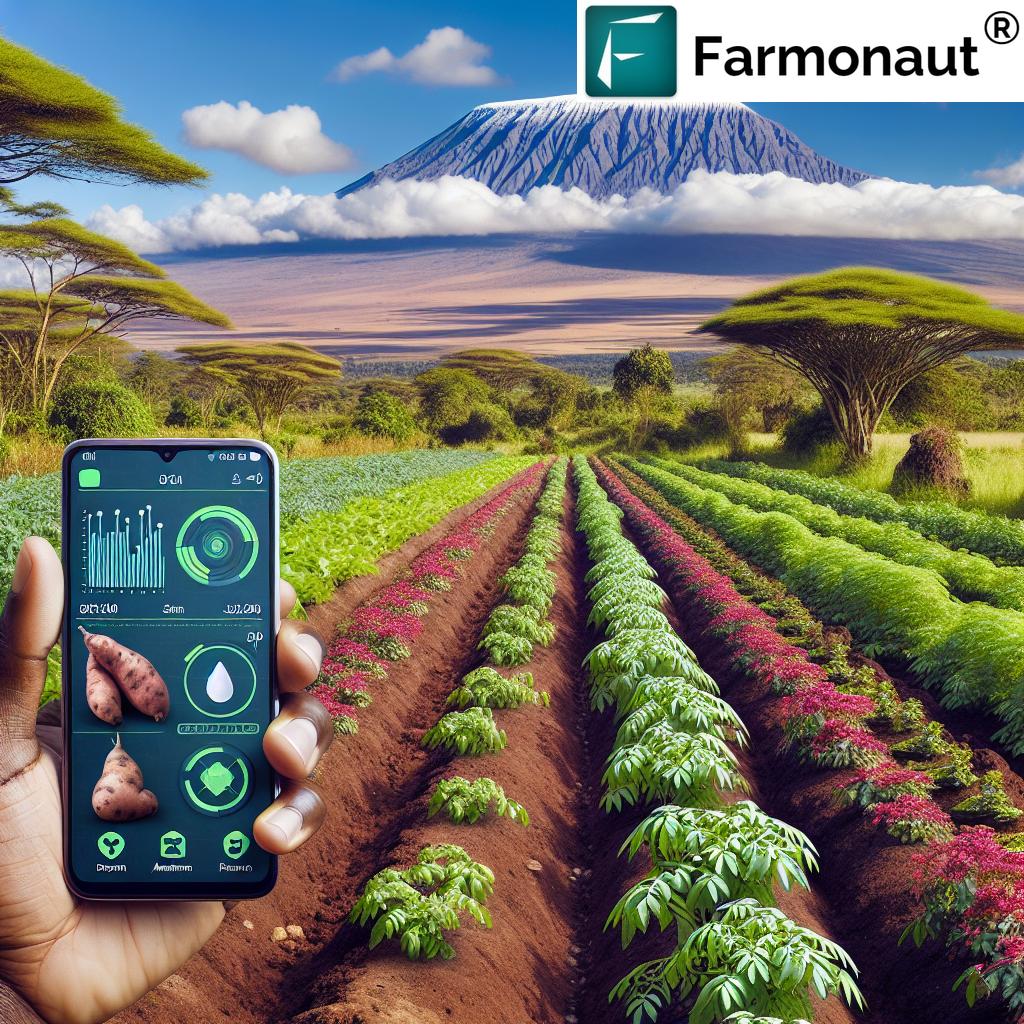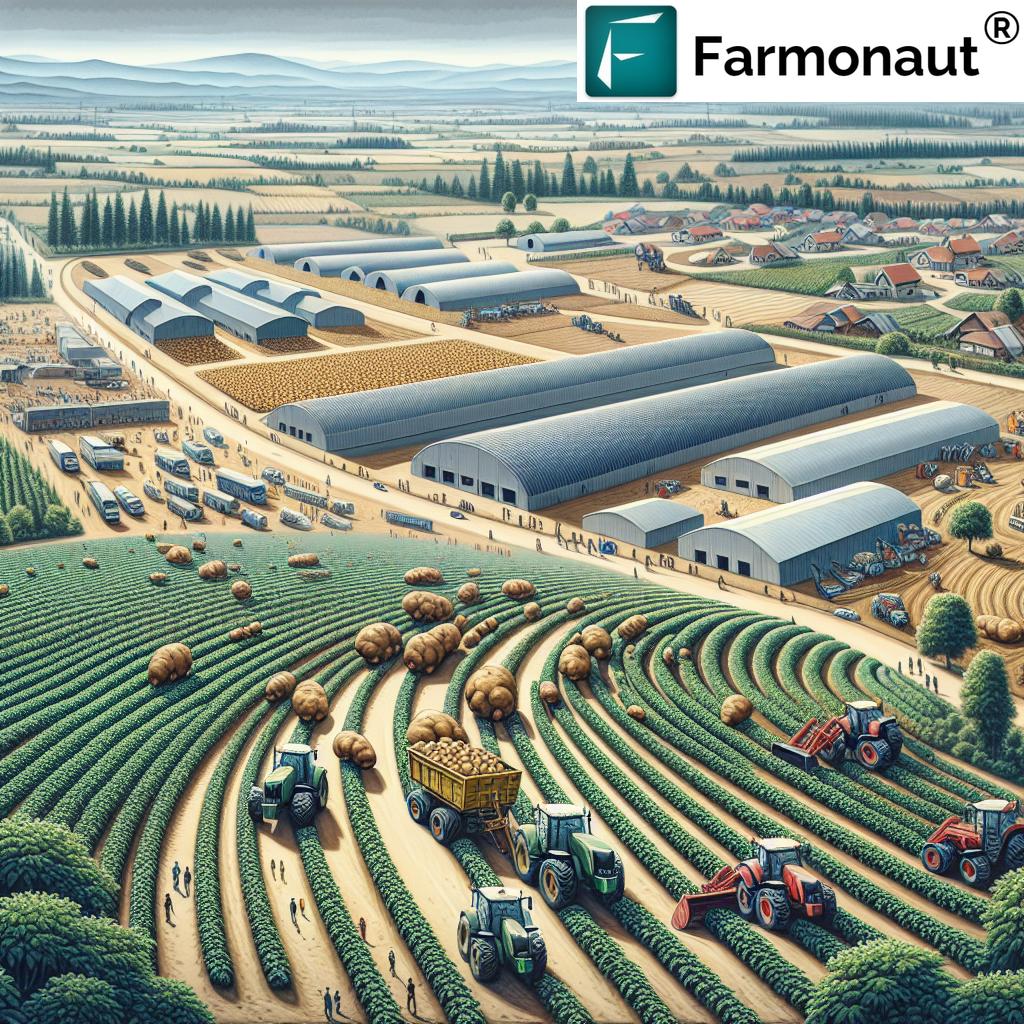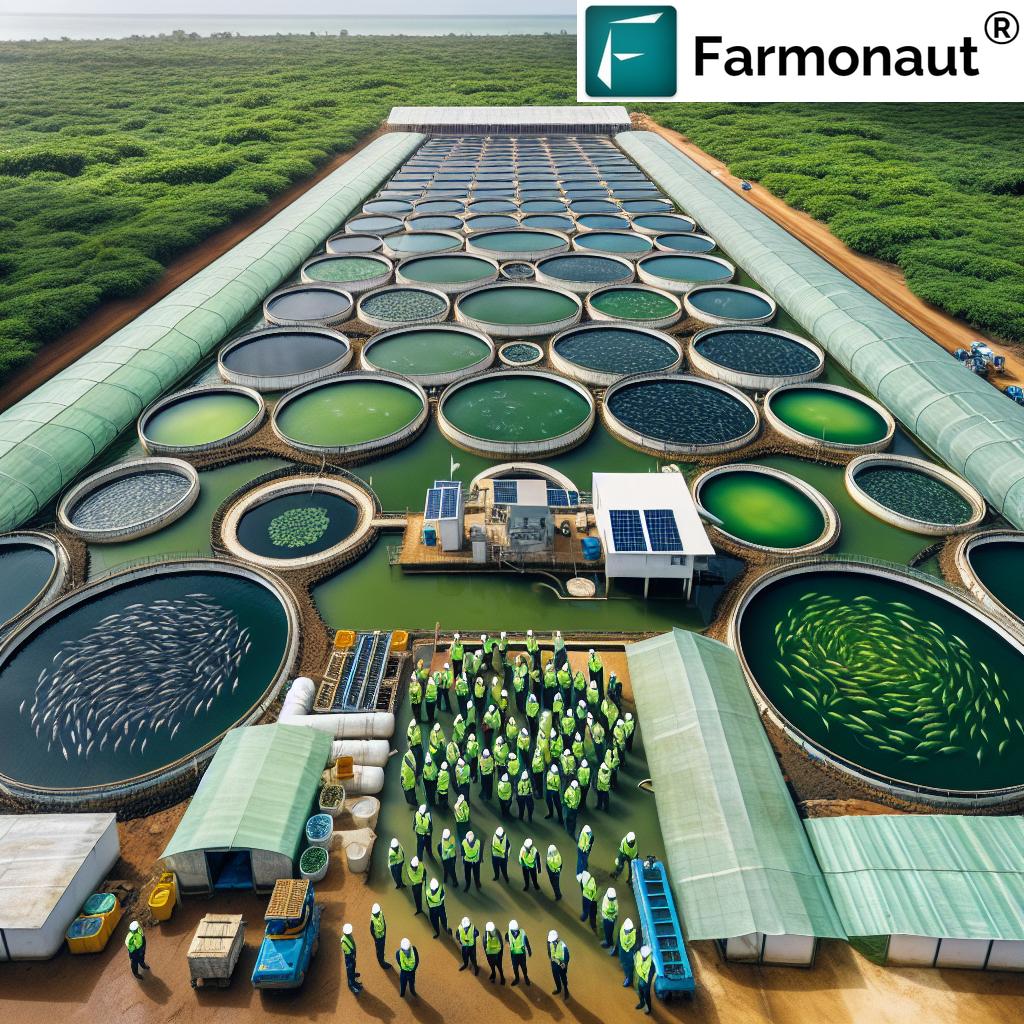Revolutionizing South African Agriculture: Sustainable Crop Protection Solutions for a Greener Future
“South Africa’s organic pesticide market grew by 25% in the last 5 years, outpacing conventional pesticides.”
As we delve into the transformative landscape of South African agriculture, we find ourselves at the forefront of a green revolution. The paradigm shift towards sustainable crop protection and eco-friendly farming practices is reshaping the agricultural sector in profound ways. In this comprehensive exploration, we’ll uncover the evolving trends, challenges, and innovations driving this change, with a particular focus on organic crop protection solutions and their impact on the future of farming in South Africa.
The Rise of Organic Crop Protection in South Africa
The South African agricultural sector is experiencing a remarkable transformation as it embraces organic crop protection methods. This shift is driven by a growing awareness of environmental concerns, consumer health consciousness, and the need for sustainable farming practices. As demand for environmentally friendly pesticides continues to surge, we’re witnessing a fundamental change in how crops are protected and nurtured.
In recent years, the market for organic pesticides and fungicides has experienced exponential growth. This trend reflects a broader global movement towards sustainability in agriculture, but it’s particularly significant in the South African context, where agriculture plays a crucial role in the economy and food security.

The Evolution of Eco-Friendly Farming Practices
The journey towards sustainable agriculture in South Africa has been marked by significant milestones in the development of eco-friendly farming practices. These practices encompass a wide range of techniques and approaches, all aimed at minimizing environmental impact while maintaining or improving crop yields.
- Integrated Pest Management (IPM): This approach combines biological, cultural, and chemical methods to control pests, reducing reliance on synthetic pesticides.
- Crop Rotation: By alternating crops in a specific field, farmers can disrupt pest life cycles and improve soil health.
- Cover Cropping: Planting cover crops between harvests helps prevent soil erosion, suppress weeds, and enhance soil fertility.
- Biological Control: Utilizing natural predators and parasites to control pest populations.
These practices form the foundation of the organic crop protection movement in South Africa, paving the way for more sustainable and environmentally friendly agricultural production.
The Role of Agricultural Innovation
Agricultural innovation has been a key driver in the development of sustainable crop protection solutions. South African researchers, agronomists, and entrepreneurs have been at the forefront of creating new technologies and methodologies to support organic farming practices.
One notable example is the development of cost-effective, biological crop protection solutions that align with the growing health consciousness among consumers. These innovations range from biopesticides derived from natural sources to advanced formulations of organic fungicides that offer comparable efficacy to their synthetic counterparts.
Furthermore, companies like Farmonaut are leveraging cutting-edge technology to support this green revolution. Through their satellite-based farm management solutions, Farmonaut is empowering farmers with real-time crop health monitoring and AI-based advisory systems. This technology integration is crucial in optimizing resource use and implementing precision agriculture techniques, which are fundamental to sustainable farming practices.
Explore Farmonaut’s innovative solutions:
The Transformation of Crop Protection Products
The shift towards organic crop protection has led to a transformation in the types of products available to South African farmers. Traditional synthetic pesticides are gradually being replaced or complemented by a new generation of organic alternatives:
- Organic Fungicides: Derived from natural sources, these fungicides offer effective protection against various plant diseases without the environmental drawbacks of synthetic options.
- Biopesticides: These pest control agents are based on natural materials such as bacteria, minerals, or plant extracts, providing targeted pest control with minimal ecological impact.
- Organic Herbicides: Made from natural ingredients, these weed control solutions offer an environmentally friendly alternative to chemical herbicides.
The development of these products has been driven by extensive research and innovation, often spearheaded by small startups that have grown into significant players in the agricultural sector.
Challenges in Agricultural Product Development
While the progress in organic crop protection has been remarkable, it hasn’t been without challenges. The development of effective and affordable organic products requires significant investment in research, testing, and regulatory compliance. Some of the key challenges include:
- Efficacy: Ensuring that organic products can match or exceed the performance of traditional synthetic pesticides.
- Cost: Developing cost-effective solutions that are accessible to farmers of all scales.
- Manufacturing: Upgrading equipment and processes to handle the unique requirements of organic product formulation.
- Regulatory Compliance: Navigating the complex regulatory landscape for new agricultural products.
Despite these challenges, the industry has shown remarkable resilience and innovation, continually improving product offerings and manufacturing processes to meet the growing demand for organic crop protection solutions.

The Impact of Location on Agricultural Innovation
The strategic location of agricultural research and production facilities plays a crucial role in the development of organic crop protection solutions. In South Africa, the Western Cape region has emerged as a hub for agricultural innovation, particularly in the organic sector.
The Western Cape’s diverse climate and rich agricultural heritage provide an ideal environment for testing and developing new crop protection products. This region’s focus on sustainable agriculture has attracted investment and expertise, fostering a vibrant ecosystem of research institutions, startups, and established agricultural companies.
The proximity to major agricultural areas allows for real-world testing and rapid iteration of new products, ensuring that solutions are tailored to the specific needs of South African farmers.
South African Agriculture Trends
The shift towards organic crop protection is part of a broader set of trends reshaping South African agriculture:
- Precision Agriculture: The adoption of technologies like GPS-guided machinery and drone-based crop monitoring is increasing efficiency and reducing resource use.
- Water Conservation: In response to water scarcity, farmers are implementing advanced irrigation systems and drought-resistant crop varieties.
- Diversification: Many farmers are diversifying their crops to reduce risk and capitalize on emerging market opportunities.
- Vertical Integration: There’s a growing trend towards vertical integration, with farmers getting involved in processing and direct marketing of their produce.
These trends are complementary to the organic movement, collectively driving the sector towards greater sustainability and resilience.
“Over 60% of South African farmers now prioritize sustainable crop protection methods, up from 30% a decade ago.”
The Role of Technology in Supporting Sustainable Agriculture
Technology plays a pivotal role in enabling and enhancing sustainable agricultural practices, including organic crop protection. Companies like Farmonaut are at the forefront of this technological revolution, offering innovative solutions that support farmers in their transition to more sustainable methods.
Farmonaut’s satellite-based farm management platform provides farmers with valuable insights into crop health, soil moisture levels, and other critical metrics. This real-time data enables farmers to make informed decisions about irrigation, fertilizer usage, and pest management, optimizing resource use and reducing the need for chemical interventions.
Key features of Farmonaut’s technology include:
- Real-time crop health monitoring using multispectral satellite imagery
- AI-driven personalized farm advisory through the Jeevn AI system
- Blockchain-based product traceability for enhanced supply chain transparency
- Fleet and resource management tools for optimized operations
- Carbon footprint tracking to support sustainability initiatives
By leveraging these technologies, farmers can more effectively implement organic crop protection strategies, monitor their effectiveness, and continuously improve their practices.
For developers interested in integrating Farmonaut’s technology:
Explore Farmonaut’s API
API Developer Documentation
The Impact of Management Restructuring on Industry Growth
The growth of the organic crop protection industry in South Africa has been accompanied by significant changes in management structures and strategies. As small startups have evolved into major players, there has been a need for more sophisticated management approaches to handle increased scale and complexity.
Key areas of management restructuring include:
- Research and Development: Increased investment in R&D teams to drive product innovation
- Quality Control: Implementation of rigorous quality control processes to ensure product efficacy and safety
- Marketing and Distribution: Development of targeted marketing strategies and expansion of distribution networks
- Regulatory Affairs: Strengthening of regulatory teams to navigate the complex landscape of agricultural product approval
These management changes have been crucial in enabling companies to scale up production, expand product lines, and meet the growing demand for organic crop protection solutions.
Expanded Product Lines and Market Diversification
As the organic crop protection market in South Africa has matured, leading companies have expanded their product lines to cater to a wider range of crops and agricultural needs. This diversification has been key to industry growth and has helped to establish organic solutions as viable alternatives across various agricultural sectors.
Examples of product line expansions include:
- Development of crop-specific organic fungicides and pesticides
- Introduction of organic seed treatments
- Creation of specialized organic solutions for high-value crops
- Formulation of organic adjuvants to enhance the effectiveness of other products
This expanded range of products has allowed farmers to implement comprehensive organic crop protection strategies across their entire operations, further driving the adoption of sustainable agricultural practices.
The Future of Crop Protection in South Africa
As we look to the future, the trajectory of crop protection in South Africa points towards an increasingly sustainable and technologically advanced landscape. The ongoing research and development in organic solutions, coupled with the integration of cutting-edge technologies, promise to further revolutionize the agricultural sector.
Key trends shaping the future of crop protection include:
- Bioengineering: Development of advanced biopesticides through genetic engineering of beneficial microorganisms
- Nanotechnology: Application of nanoparticles for targeted and controlled release of organic crop protection agents
- AI and Machine Learning: Enhanced prediction and early detection of pest and disease outbreaks
- Robotics: Automated application of crop protection products for improved precision and reduced human exposure
These advancements, combined with a growing commitment to sustainability among farmers and consumers alike, are set to cement South Africa’s position as a leader in organic and eco-friendly agricultural practices.
Comparative Analysis: Traditional vs. Organic Crop Protection Methods in South Africa
| Aspect | Traditional Methods | Organic Methods |
|---|---|---|
| Pesticide Types | Synthetic chemicals | Natural/biological agents |
| Environmental Impact | High (7/10) | Low (3/10) |
| Cost-Effectiveness | Initially lower | Higher upfront, lower long-term |
| Health Implications | Potential risks | Generally safer |
| Yield Performance | High short-term | Comparable long-term |
| Soil Health | Potential degradation | Improved over time |
| Water Usage | Higher | Lower, more efficient |
| Biodiversity Impact | Negative | Positive |
| Market Demand | Decreasing | Rapidly increasing |
| Regulatory Compliance | Increasingly strict | Favorable policies |
Conclusion: Embracing a Greener Future
The revolution in South African agriculture towards sustainable crop protection solutions represents a significant step towards a greener, more resilient future. The shift from traditional synthetic pesticides to organic alternatives is not just a trend but a fundamental change in how we approach farming and food production.
As we’ve explored, this transformation is driven by a combination of factors: growing environmental awareness, consumer demand for healthier food options, technological advancements, and the innovative spirit of South African farmers and agricultural companies. The challenges encountered along the way have spurred creativity and led to the development of highly effective, environmentally friendly crop protection solutions.
The role of technology, exemplified by companies like Farmonaut, cannot be overstated. By providing farmers with advanced tools for crop monitoring and management, these technological solutions are enabling the widespread adoption of sustainable practices. They bridge the gap between traditional farming methods and the precision agriculture needed for effective organic crop protection.
Looking ahead, the future of South African agriculture is bright. As research continues and technologies evolve, we can expect even more innovative and effective organic crop protection solutions. This ongoing revolution will not only benefit the environment and consumer health but also position South African agriculture at the forefront of global sustainable farming practices.
The journey towards a fully sustainable agricultural sector is ongoing, but the progress made in organic crop protection is a testament to what can be achieved when innovation, environmental consciousness, and agricultural expertise converge. As we continue to nurture this green revolution, we pave the way for a more sustainable, productive, and resilient agricultural future for South Africa and beyond.
Frequently Asked Questions (FAQ)
- What are the main benefits of organic crop protection methods?
Organic methods offer reduced environmental impact, improved soil health, lower long-term costs, and align with growing consumer demand for healthier food options. - How do organic pesticides compare in effectiveness to traditional synthetic pesticides?
While initially less potent, organic pesticides can be equally effective when used as part of an integrated pest management strategy. They also offer the benefit of not creating pesticide-resistant pests over time. - What role does technology play in organic crop protection?
Technology, such as Farmonaut’s satellite-based monitoring, plays a crucial role in enabling precision agriculture, early pest detection, and optimized resource use, all of which support effective organic crop protection strategies. - Are organic crop protection methods more expensive than traditional methods?
Initially, organic methods may have higher costs, but they often result in lower long-term expenses due to improved soil health and reduced input needs over time. - How is the South African government supporting the shift to organic agriculture?
The government is implementing favorable policies and regulations to encourage organic farming practices, including support for research and development in organic crop protection.




















